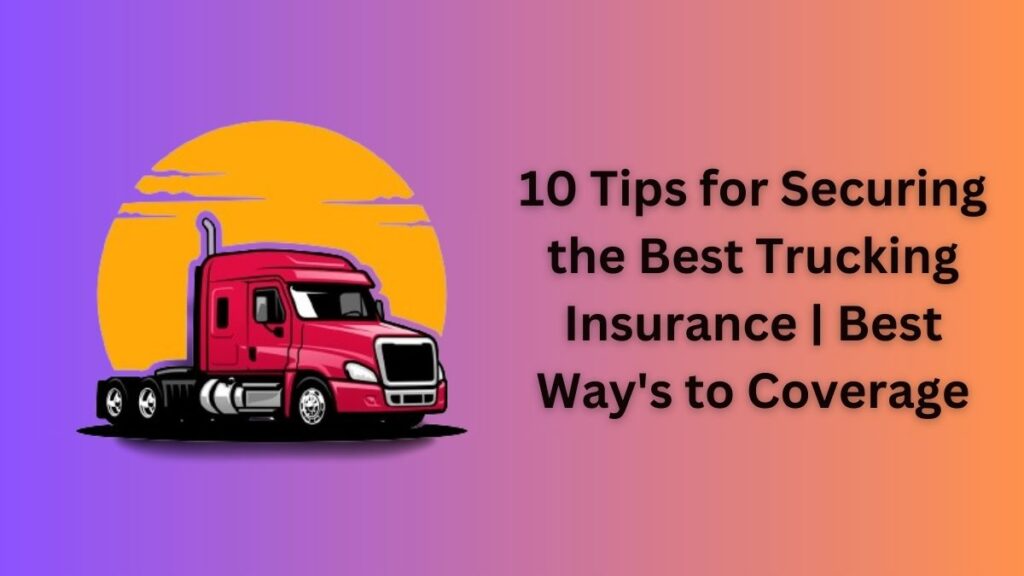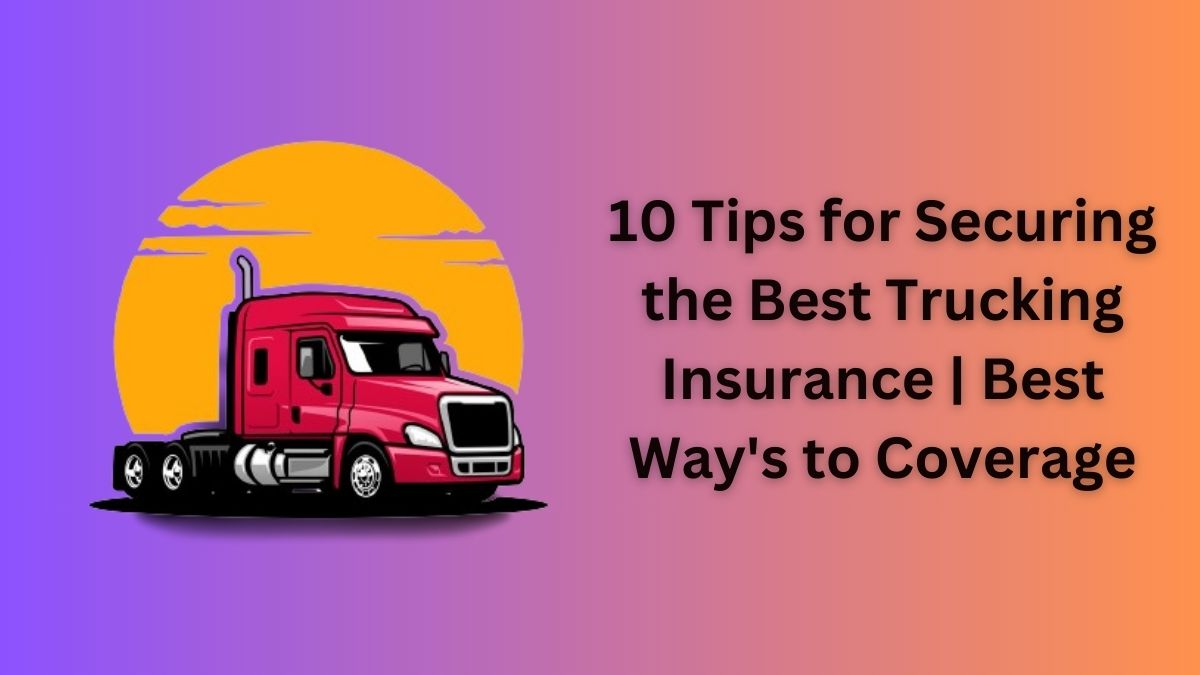Securing the right insurance coverage is crucial for trucking businesses to protect their assets and operations. With the complexities of the transportation industry, finding the best trucking insurance can be challenging. However, with the proper knowledge and strategies, trucking companies can navigate the insurance market confidently. In this comprehensive guide, we’ll explore ten essential tips to help you secure the best trucking insurance coverage for your business.

Understanding Trucking Insurance Basics
Vehicle insurance provides coverage for commercial trucking operations, including liability for bodily injury and property damage, cargo coverage, and physical damage coverage for trucks and trailers. Understanding the basics of trucking insurance is essential for trucking companies to make informed decisions about their coverage needs.
Assess Your Insurance Needs
Before purchasing trucking insurance, assess your business’s specific insurance needs. Consider factors such as the types of cargo you transport, the distance of your routes, your fleet size, and your company’s safety record. Understanding your insurance needs will help you determine the appropriate coverage limits and policy options.
Work with Specialized Insurers
Trucking insurance is a specialized field, and working with insurers who understand the unique needs of the transportation industry is crucial. Look for insurers with experience in providing coverage for trucking businesses and who offer tailored insurance solutions to meet your specific requirements.
Consider Additional Coverages
In addition to basic liability coverage, consider additional coverages that may be beneficial for your trucking business. This may include cargo insurance to protect against damage or theft of goods in transit, non-trucking liability insurance for independent owner-operators, and umbrella insurance for added liability protection.
Maintain a Strong Safety Record
Insurance companies consider a trucking company’s safety record when determining premiums and coverage options. Maintain a strong safety record by implementing comprehensive safety protocols, providing regular training for drivers, and investing in vehicle maintenance and inspection programs.
Review Policy Exclusions and Limitations
When reviewing insurance policies, pay close attention to any exclusions or limitations that may apply. Exclusions are specific situations or circumstances not covered by your policy, while limitations may include restrictions on coverage amounts or types of vehicles. Understanding these limitations is crucial to ensure you have adequate coverage.
Shop Around for Quotes
Don’t settle for the first insurance quote you receive. Shop around and obtain quotes from multiple insurers to compare coverage options and premiums. Be sure to provide accurate information about your business and operations to receive accurate quotes.
Consider Bundling Policies
Many insurers offer discounts for bundling multiple insurance policies, such as trucking insurance, general liability insurance, and commercial property insurance. Bundling your policies can help you save on premiums while ensuring comprehensive coverage for your business.
Review and Update Your Coverage Regularly
As your trucking business evolves, your insurance needs may change. Regularly review your insurance coverage to ensure it aligns with your current operations and risk profile. Update your coverage as needed to maintain adequate protection for your business.
Work with an Insurance Broker
Navigating the complexities of trucking insurance can be challenging. Consider working with an experienced insurance broker who can help you understand your coverage options, negotiate with insurers on your behalf, and find the best insurance solutions for your business.
Must Read:-
- What is Private Health Insurance: Best Way’s to Your Comprehensive Guide in 2024
- How Much is Commercial Auto Insurance? Best Way’s to fulfill you plan in 2024
Best Trucking Insurance related [FAQs]
Q1. What types of coverage are included in trucking insurance?
Trucking insurance typically includes liability coverage, cargo coverage, and physical damage coverage for trucks and trailers.
Q2. How can I lower my trucking insurance premiums?
You can lower your trucking insurance premiums by maintaining a strong safety record, bundling policies, implementing risk management strategies, and working with specialized insurers.
Q3. Do I need cargo insurance for my trucking business?
Cargo insurance is essential for trucking businesses to protect against damage or theft of goods in transit. It provides coverage for the value of the cargo being transported.
Q4. What factors affect trucking insurance rates?
Various factors can influence trucking insurance rates, including the size and type of fleet, driving records, cargo types, and routes.
Q5. Can I customize my trucking insurance policy?
Yes, many insurers offer customizable trucking insurance policies that allow you to tailor your coverage to your specific business needs and risks.
Q6. How often should I review my trucking insurance policy?
It’s recommended to review your trucking insurance policy annually or whenever significant changes occur in your business operations or risk profile.
Conclusion:
Securing the best trucking insurance coverage is essential for protecting your business against financial losses and liabilities. By following these ten tips and working with experienced insurers and brokers, trucking companies can ensure they have the right coverage to safeguard their operations on the road.
